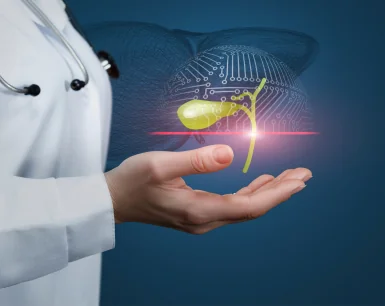Gastric bypass surgery can be life-changing for many, offering improved health and significant long-term weight loss. But these benefits also come with big adjustments, especially around food. One of the first questions people ask our Phoenix Health dietitians is, “What foods can I never eat again?”
While there’s rarely an absolute ban, certain foods are strongly discouraged because they can trigger discomfort, complications, or slow your weight loss progress. Below, we break down the main foods to avoid after a gastric bypass.
How Gastric Bypass Changes Eating Habits
This surgery reduces your stomach size and reroutes part of your digestive system. As a result, your body digests food differently. Eating large portions or certain types of food can cause problems like dumping syndrome, a rapid emptying of food into the small intestine that leads to nausea, cramps, and diarrhoea.
After gastric bypass surgery, your diet moves through several stages, from liquids to pureed foods and eventually back to solids. But even when you’re eating more normally, some foods remain best left off the menu long term.
Foods You May Need to Avoid Long-Term
- High-Sugar Foods
Sweets, sugary drinks, and desserts are the top culprits for causing dumping syndrome and spikes in blood sugar. A study found that up to 70% of gastric bypass patients experience dumping syndrome when consuming high-sugar foods, showing just how important it is to limit these.
Sugary foods move quickly through the small gastric pouch, which can trigger sudden hunger spikes and even lead to weight regain over time. Fizzy drinks are especially problematic—they can cause discomfort by forming large gas bubbles that stretch the limited-size stomach pouch, and regular consumption may eventually lead to pouch enlargement.
Avoid:
Fizzy drinks and sweetened fruit juices
Cakes, pastries, and biscuits
Sweets and chocolate
- High-Fat and Fried Foods
Fatty foods can lead to bloating, diarrhoea, and discomfort. Eating low-fat meals is generally advised after surgery, as greasy foods are often poorly tolerated and can derail your progress.
Examples of foods to avoid:
Fried foods (like chips or fried chicken)
Sausages and fatty cuts of meat
Creamy sauces and heavy dressings
The above foods are often termed “slider” foods. A slider food is a type of food that slides through the stomach pouch easily without providing much fullness after bariatric surgery. These are typically also very high in fat and sugar and therefore calories – a recipe for weight regain.
- Tough or Fibrous Meats
Red meats such as steak, lamb, and pork can be tough to chew and hard to digest, especially in the early months after introducing the stage 3 diet (normal textures). Even later, many people find these meats difficult unless they’re cooked until very tender and chewed thoroughly. Swap barbecued chicken breast for slowly cooked chicken leg (with fat trimmed and skin removed).
- Bread, Pasta, and Rice
These familiar staples can form part of a healthy, balanced diet, but they may also lead to uncomfortable fullness and take up valuable space in the stomach pouch that could be used for more nutritious foods. After gastric bypass, your smaller stomach pouch may struggle to handle bulky or sticky starchy foods. Many patients find bread, pasta, or rice cause discomfort. Learning to adjust textures, portion sizes, and preparation methods is key for long-term comfort. Opt for higher-fibre versions of these foods wherever possible, chew thoroughly, and take your time when eating. Many people find that toasted sourdough or rye bread is easier to tolerate than spongy white bread – and it’s also a healthier choice.
- Fizzy Drinks
Carbonated drinks introduce gas into the stomach, causing bloating and discomfort. Over time, regular consumption can stretch your new stomach pouch – something best avoided, as highlighted in standard post-surgery advice. They also often go hand in hand with other poor dietary choices.
The Importance of Portion Control
Portion sizes are drastically reduced after a gastric bypass. Initially, your stomach may only hold a few tablespoons of food, and even long-term, your meals remain small. Overeating can cause nausea, pain, or vomiting. Lifelong meal portion sizes should be around the size of a side plate or small cereal bowl.
It’s recommended to:
- Take small mouthfuls—around the size of a 20 pence piece
- Eat slowly (taking 20–30 minutes for each small meal)
- Chew all food thoroughly to prevent blockages
- Stop as soon as you feel satisfied, not full
- Avoid “grazing”. Have planned meals and snacks and do not deviate from these.
What are the Best Foods to Eat After Gastric Bypass
For lasting success, your diet should be balanced. Aim for a source of protein at each meal, and “eat the rainbow” when it comes to the variety of fruits and vegetables. Lower fat dairy products are great sources of protein and calcium. A study underlined the importance of monitoring protein intake after gastric bypass, noting that cautious attention helps prevent nutritional deficiencies and supports sustainable weight management.
Good choices include:
Lean protein: e.g. chicken, lean minced beef, eggs, fish (including oily fish such as salmon), tofu, and lower-fat dairy products such as plain yoghurt and cottage cheese.
Vegetables and salad: e.g. spinach, broccoli, courgette, cauliflower, and peppers – nothing is off-limits.
Fruits: berries, apples, melon, and banana. Opt for fresh or frozen varieties over dried or juiced.
Whole grains (small portions): oats, quinoa, sweet potato, and boiled potatoes with the skins.
Healthy fats (small amounts): avocado, nuts, and olive oil.
Key Post-Surgery Insights You Should Know
Lifelong Supplements: You’ll need daily supplements to prevent deficiencies, especially in vitamin B12, iron, calcium, and vitamin D, due to reduced nutrient absorption.
Changing Tastes: Many people notice their taste buds shift or develop new food intolerances after surgery – a surprising but common side effect.
Emotional Eating: Having a gastric bypass can change your relationship with food. Ongoing emotional or psychological support can be essential for long-term success.
You may not have to ban every food permanently, but items like sugary, fizzy, fatty, and difficult-to-digest foods are best avoided to protect your health and comfort. A healthy, balanced, protein-rich diet with controlled portions is key, and regular check-ups help keep you on track.
Long-Term Success—Why Aftercare Matters
The real success of gastric bypass doesn’t end with the surgery—it continues with long-term support, expert guidance, and a commitment to healthy habits. Research has even proposed tools like the “bariatric food pyramid” to help guide patients through balanced, sustainable eating over time.
So, it is important to take proper post-operative care under the guidance of a qualified bariatric dietitian. At Phoenix Health, we offer dedicated aftercare packages that help you stay aligned with your weight loss goals and maintain your health for years to come. Remember, it’s not advisable to seek cheap weight loss surgeries abroad, such as in Turkey, where you cannot easily address post-surgery complications or question aftercare quality. Choosing a trusted UK-based private weight loss clinic or going through the NHS ensures you have access to expert care, proper follow-up, and long-term support that safeguards your health and success.
Ready to Take the Next Step?
If you’re considering weight loss surgery and want to learn how Phoenix Health can support you on your journey, don’t hesitate to get in touch. Your transformation could be closer than you think. Call us for a FREE consultation at +44 1244 738 159. You can also reach out to us by email at Enquiries@phoenix-health.co.uk. Explore our weight loss treatments.
References:
Aron-Wisnewsky J et al. Nutritional and Protein Deficiencies after Gastric Bypass. 2016. https://doi.org/10.1371/journal.pone.0149588
Moizé VL et al. Nutritional Pyramid for Post-gastric Bypass Patients. Obes Surg. 2010;20:1133–1141. https://doi.org/10.1007/s11695-010-0172-7
Tack J, Deloose E. Complications of Bariatric Surgery: Dumping Syndrome, Reflux and Vitamin Deficiencies. Best Pract Res Clin Gastroenterol. 2014;28(4):741–749. https://doi.org/10.1016/j.bpg.2014.07.010
Medically Reviewed by Lujain Alhassan, BSc, ANutr
Registered Associate Nutritionist and Bariatric Nutrition
Medically Reviewed by Alice Fletcher (BSc Nutrition and Dietetics)
Registered Dietitian with a specialist interest in weight management
HCPC Registered: DT27765




